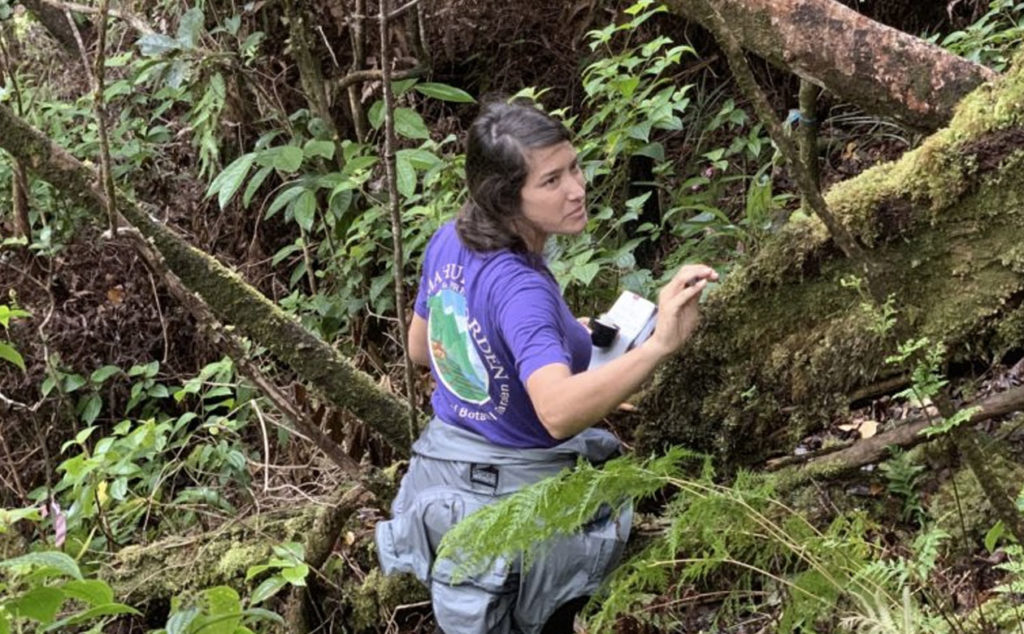The United Nations has declared 2020 as the International Year of Plant Health. In recognition of this timely and timeless theme, and with the understanding that all life on this planet is dependent on plant health, Nina Ronsted, NTBG director of Science and Conservation, speaks about how NTBG contributes to protecting and advancing plant health.
This year, as the world is ravaged by a global pandemic, it may seem less urgent to worry about plant health, but in fact the health of plants, animals and humans is closely interrelated. The Hawaiian proverb, “I ola ‘oe, i ola mākou nei” (“my life depends on yours, your life depends on mine”) illustrates that interdependence.
In 2019, the Intergovernmental Science-Policy Platform on Biodiversity and Ecosystem Services (IPBES) published an alarming report assembled by an international team of 455 experts and contributing authors from 50 countries.
The report concluded that ecosystems, species, wild populations, and local varieties and breeds of domesticated plants and animals are shrinking, deteriorating or vanishing. Our essential, interconnected web of life is growing smaller and increasingly frayed. The report further assessed that up to one million species of plants and animals are threatened with extinction.

The loss of biodiversity and ecosystems directly undermines efforts to meet UN Sustainable Development Goals related to poverty, hunger, health, water, cities, climate, oceans, and land. Loss of biodiversity is therefore not only an environmental issue, but also of great developmental, economic, security, social, and moral significance.
Conservationists report that nearly half of all new zoonotic disease spillover from animals to humans since 1940 is related to changes in how we use land, practice agriculture, or hunt wildlife.
The IPBES report stresses that it’s not too late to reverse environmental decline, but only if we start now at every level from local to global. Scientists and policy makers are beginning to discuss how the global pandemic-induced disruption in normal human activity presents a unique opportunity to bolster our efforts to address climate and environmental crises in a meaningful way. Many of us recognize that protecting wildlife and stopping biodiversity loss is critical to finding solutions.

Healthy plants are at the center of these issues and are the foundation of life on our planet, providing critical habitat for animals and people. The International Year of Plant Health couldn’t be more timely. Likewise, the mission of NTBG, to enrich life through discovery, scientific research, conservation, and education, is as relevant as ever. From the biodiversity hotspot of Hawai‘i where we are based, throughout the Pacific, and to our garden in Florida and beyond, we are determined to contribute to global solutions by saving plants and saving people.